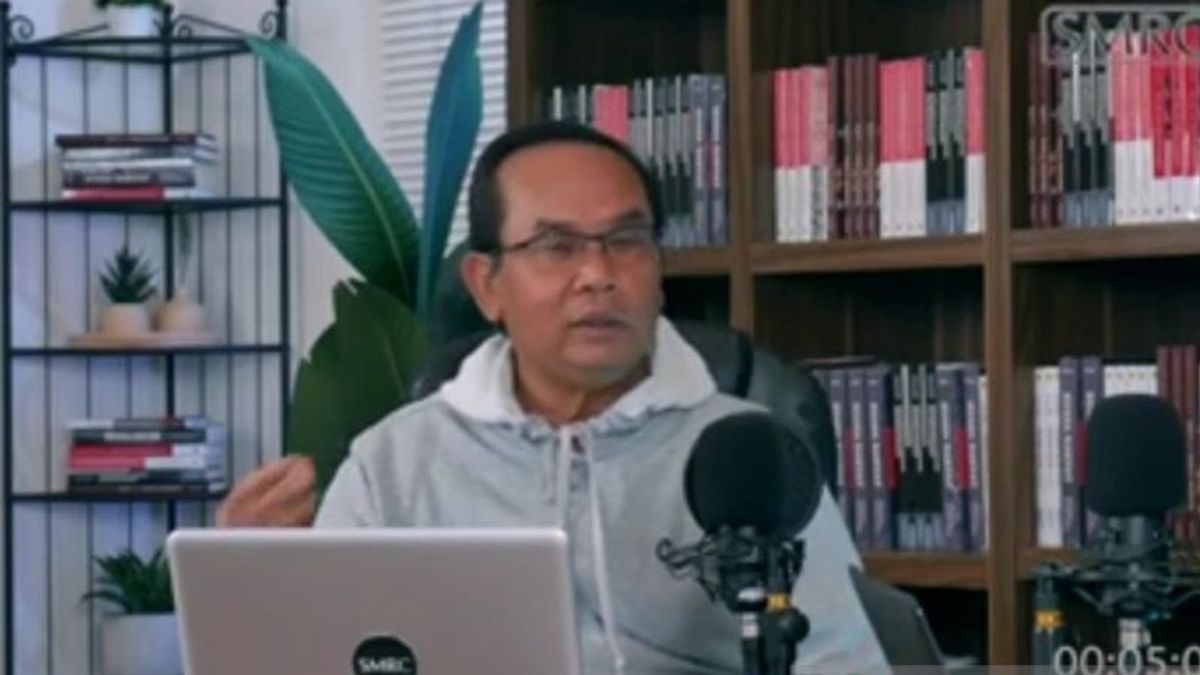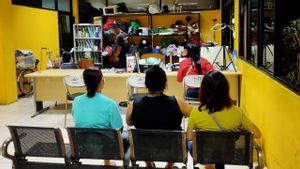The findings of an experimental survey conducted by Saiful Mujani Research and Consulting (SMRC) show that the vote of the Golkar Party will increase if it carries the Governor of Central Java Ganjar Pranowo as a presidential candidate (candidate) in the 2024 election.
In fact, Ganjar Pranowo will change the map of support for political parties. SMRC founder Saiful Mujani said the experimental survey conducted by SMRC was to assess the effect of presidential candidates on the vote acquisition of the Golkar Party.
There were three figures who were chosen and treated as treatment, namely Airlangga Hartarto, Ganjar, and Erick Thohir. Airlangga was included because he was the party leader. Ganjar because there was a discussion among Golkar to carry candidates.
"Meanwhile, Erick is a non-party politician who has been socializing so far. Other figures who have been declared by other parties have not been included, such as Prabowo Subianto and Anies Baswedan," Saiful said at a Political Surgery entitled "Who is the Presidential Candidate to HELP Increase Golkar?" broadcast on SMRC TV Youtube, Antara, Thursday, November 17.
Before seeing the effect, he said, SMRC saw the control variables for the experiment, namely the electability of political parties.
In this control variable, the Golkar Party got 11 percent of the votes and was in third place after PDIP and Gerindra. This experimental survey only used 267 samples so that its "margin of error" was around 6.1 percent. Generally, the SMRC's national margin of error is around 3 percent.
Among Ganjar, Airlangga, and Erick Thohir, said Saiful, this survey found that Ganjar had a positive effect on strengthening Golkar's votes.
"In the 'treatment', the question of questionnaire is that if Golkar nominates Ganjar as president, then which party or candidate from the party will be elected? In this simulation, Golkar has strengthened from 11 percent to 17 percent of the vote. The increase in Golkar votes is approximately 6 percent," said Saiful.
However, there is a very interesting note, according to Saiful, if Golkar nominates Ganjar, then the PDIP vote will be down from 25 percent (control variables) to 18 percent.
Saiful explained that so far, in various surveys, PDIP received votes that always exceeded the acquisition in the 2019 General Election.
According to him, one of the elements of the PDIP vote is Ganjar's supporters. If Ganjar is nominated or moved to another party, part of the PDIP vote moves.
"If Ganjar is nominated by Golkar, he invites (some) of his voters to go to Golkar," said Saiful.
If Golkar nominates Ganjar, said Saiful, the map of party political power will change, where Gerindra, PDIP, and Golkar become balanced.
He noted that PDIP needs to be careful with these findings.
"If PDIP wants to keep its voice, they must be careful with this fact. Do not let Ganjar be taken by other parties," said Saiful.
This survey is in a face-to-face interview format on 3 – 9 October 2022. The population of this survey is all Indonesian citizens who have the right to vote in general elections, namely those who are 17 years old or older, or have been married when the survey was conducted.
From that population, 1220 respondents were selected "random" ("stratified multistage random sampling"). "Response rate" is 1027 or 84 percent. "Margin of error" surveys with sample sizes are estimated to be ± 3.1 percent at a 95 percent confidence level (simple random sampling assumption).
Experimental methods to test the effect of presidential candidacy on party electability are carried out by randomly dividing respondents into four groups (control, "treatment" 1, "treatment" 2, and treatment 3), and each respondent gets one question according to his group.
The English, Chinese, Japanese, Arabic, and French versions are automatically generated by the AI. So there may still be inaccuracies in translating, please always see Indonesian as our main language. (system supported by DigitalSiber.id)
Most Popular Tags
#Prabowo Subianto #donald trump #ramadan #Eid Al-Fitr #gaza #TNI BillPopular
24 Maret 2025, 00:00












